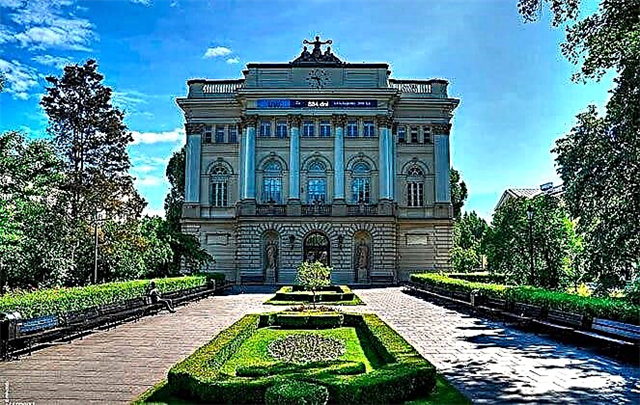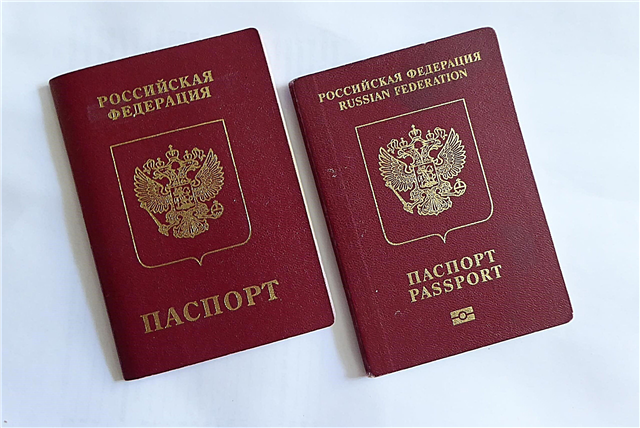When one person has passports of two states and is recognized as their citizen, this phenomenon is called dual or second citizenship, and a person who has several passports is called bipatride. Domestic legislation in this regard gives priority to interstate agreements.
Differences between dual and second citizenship
Dual and Second are two separate cases of multiple citizenship. Despite the apparent closeness of these two concepts, they have different legal content and legal force for its owners:
- Dual citizenship means that a person has two different civil passports, while the state authorities of both countries recognize the rights and obligations of a person in relation to another state. Dual citizenship is always supported by interstate treaties, since they determine the delimitation of the rights and obligations of citizens with two passports in relation to both "homelands";
- Second citizenship means that a person has two passports of different countries, however, in this case, each of the states considers him exclusively a citizen. All rights and obligations arising from the fact of possession of civil passports, such a person retains in full in relation to both states, their delimitation and mutual recognition does not occur.
Individuals with two or more civil passports are called bipatrides. Second citizenship is a widespread international practice, dual citizenship is much less common, since it is based on bilateral agreements between specific states. Many countries reject the institution of dual citizenship altogether or allow it for representatives of individual partner states.
Is it possible to have dual citizenship in the Russian Federation
Legal relations in this area are regulated by the Law "On Citizenship of the Russian Federation", however, the issue of citizenship is also raised in the country's main law - the Constitution. In Art. 62 states that Russians holding passports of another state are considered only as citizens of the Russian Federation, unless otherwise provided by interstate agreements or laws. The same postulate sounds in Part 1 of Art. 6 of the "Law on Citizenship". The clause is about treaties or laws and means an indirect permission for dual citizenship in Russian law.
Both legal acts allow such a possibility only when there is an international agreement between the Russian Federation and the corresponding state. For 2019, the Russian Federation has such an agreement only with Tajikistan. The agreement was signed back in 1995, and 2 years later came into force after ratification by parliaments.
Until recently, Russia had a similar agreement with another Central Asian republic - Turkmenistan. One of the conditions of the agreement was the interest of both parties in extending the terms of its validity. However, in 2015, the agreement was not extended at the initiative of the Turkmen side.

Rights and obligations of a person with dual citizenship
The rights and obligations of persons with dual citizenship are determined by the legislation of each country and the text of the agreement on the mutual recognition of each other's citizenship. In practice, a bipatrid possesses the civil rights of both states, but can fully exercise them in the country in which he currently lives.
As an example, consider the agreement between the Russian Federation and Tajikistan. Bipatrid cannot receive a pension in both countries, enjoy benefits, receive social benefits and benefits. All this is available to him only in the state in which he lives at a particular moment in time.
You May Also Like
When moving to a partner country of the agreement, a bipatrid acquires the right to use all rights at a new place of residence:
- He has the right to apply for a pension and social benefits;
- Receive benefits and other payments.
Some constitutional rights of a citizen can be realized without moving. For example, a citizen of the Russian Federation and Tajikistan, permanently residing in the Central Asian republic, can take part in the presidential elections and in the representative bodies of Russia. At the same time, the right to be elected for bipatrides is limited. Such persons cannot hold elective office and be elected to parliament. The exception is elections to representative bodies of local self-government.
Some restrictions on the rights of bipatrides are imposed by separate legislative acts concerning service in the security forces and law enforcement agencies.
Persons with dual citizenship cannot:
- Serve in the police;
- In special services;
- At the prosecutor's office;
- To hold positions of judges.
The agreement also regulates the legal obligations of persons holding civil passports of the Russian Federation and Tajikistan. The bipatrid's obligations towards both countries remain, but they come into force in the country of residence.

Such a face:
- Pays taxes in the country of residence;
- Carries out military service in the country in which he lives.
Having paid a military duty and moved to a partner country of the agreement, a citizen of Russia and Tajikistan cannot be subjected to military conscription at a new place of residence. This situation is recorded in Art. 3 agreements between the Russian Federation and Tajikistan.
The same article states that a citizen can be mobilized in the country of residence, even if he has already completed military service in the partner country of the agreement. Also, a bipatride has the right to do military service under a contract in any of the countries, despite the military duty paid earlier.
Citizens can initially fulfill some constitutional obligations only in the country of residence. For example, caring for nature or cultural and historical heritage, or the obligation to respect the rights of others, initially presupposes that a citizen is in a particular state.
Responsibility for dual citizenship
You May Also Like
There is no administrative or, moreover, criminal liability for Russians for a second passport, so obtaining it is completely legal. The right to obtain a passport of another country is guaranteed by Art. 62 of the Constitution, if such an act does not violate legal acts and international agreements of the Russian Federation.
Therefore, the punishment of a citizen of the Russian Federation is not provided for in the case of obtaining a second citizenship, and even more so for registration of dual citizenship with Tajikistan, which is permitted by a separate international treaty.

Since 2014, liability has been introduced for citizens of the Russian Federation for late notification of state bodies about obtaining a passport of another state. According to the "Law on Citizenship", the holder of a domestic passport is obliged to notify the body responsible for migration (GUVM of the Ministry of Internal Affairs) of the acquisition of citizenship of another state, including Tajikistan. The maximum non-punishable period is 60 days from the date of issue of the foreign passport.
Responsibility for late notification of state bodies about obtaining citizenship may lie in the administrative or criminal plane. For late notification or provision of incomplete information about the acquisition of citizenship, the offender faces an administrative a fine from 500 to 1,000 rubles.
More stringent measures threaten the offender if criminal liability is applied to him under Art. 330.2 of the Criminal Code of the Russian Federation. Consequences in the form of a criminal case may occur if the fact of knowingly concealing the presence of a second passport by a Russian is established, which is expressly prohibited by the Criminal Code of the Russian Federation.
In this case, the offender faces a trial and a possible criminal sentence.A convicted person may be sanctioned by a fine up to 200,000 rubles or in the amount of annual income, or up to 400 hours forced labor.
The legislative framework of the Russian Federation allows Russians to become citizens of any country in the world. However, in most cases, this will not matter for the state bodies of the Russian Federation - they will consider the bipatrid only as a Russian citizen. The only exception is Tajikistan, with which dual citizenship is permissible, allowing a person to exercise the rights of both states.











